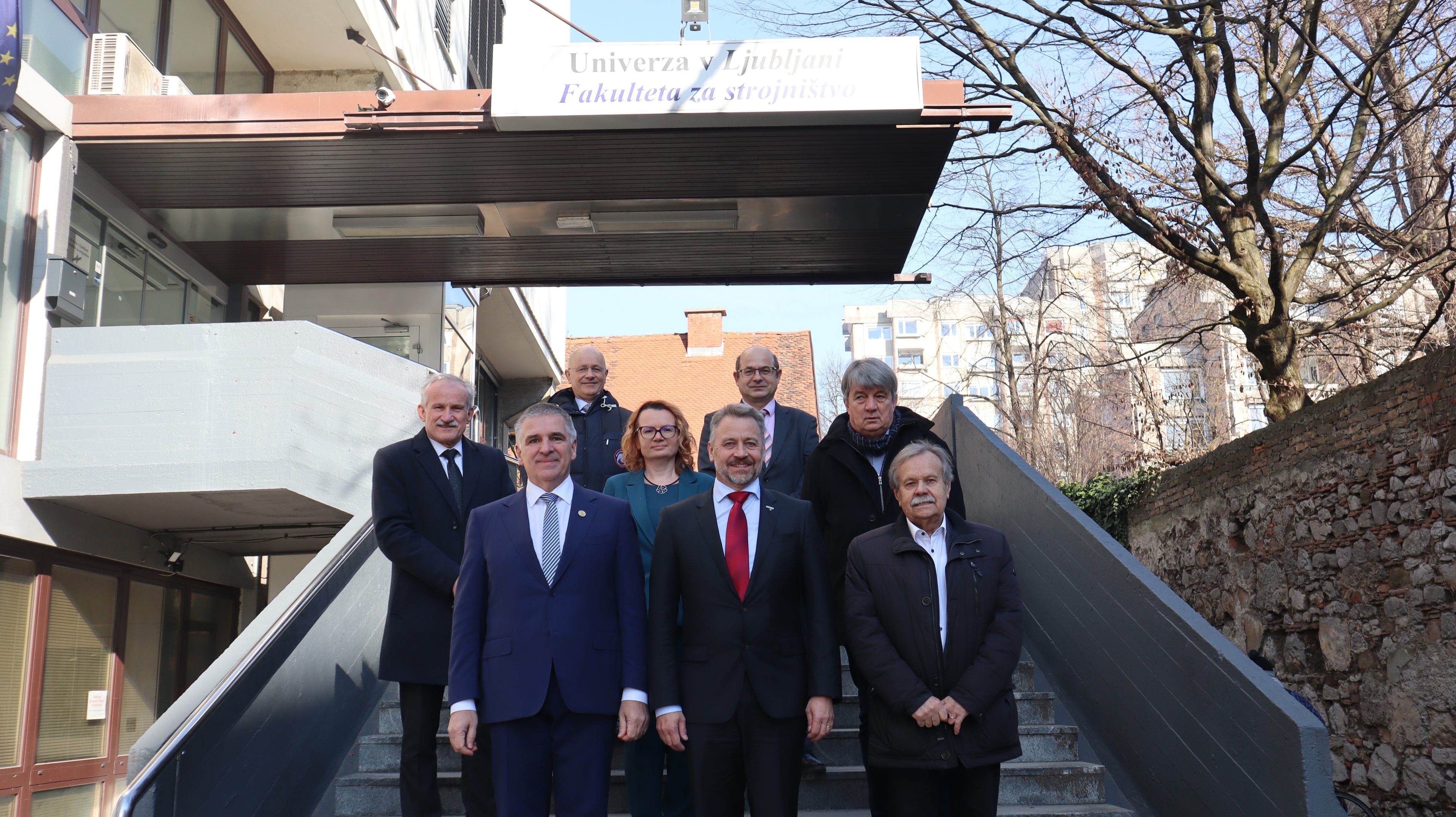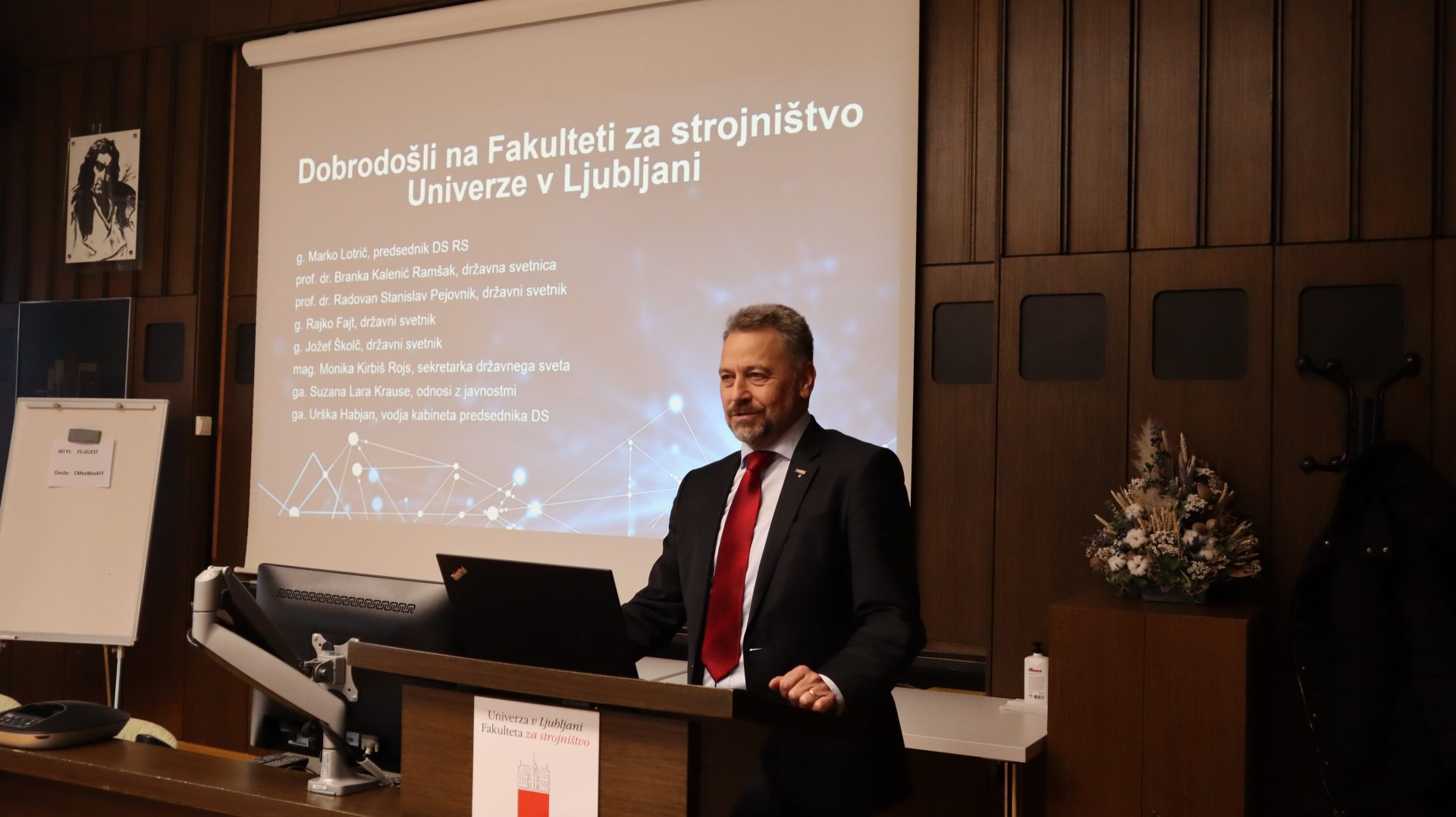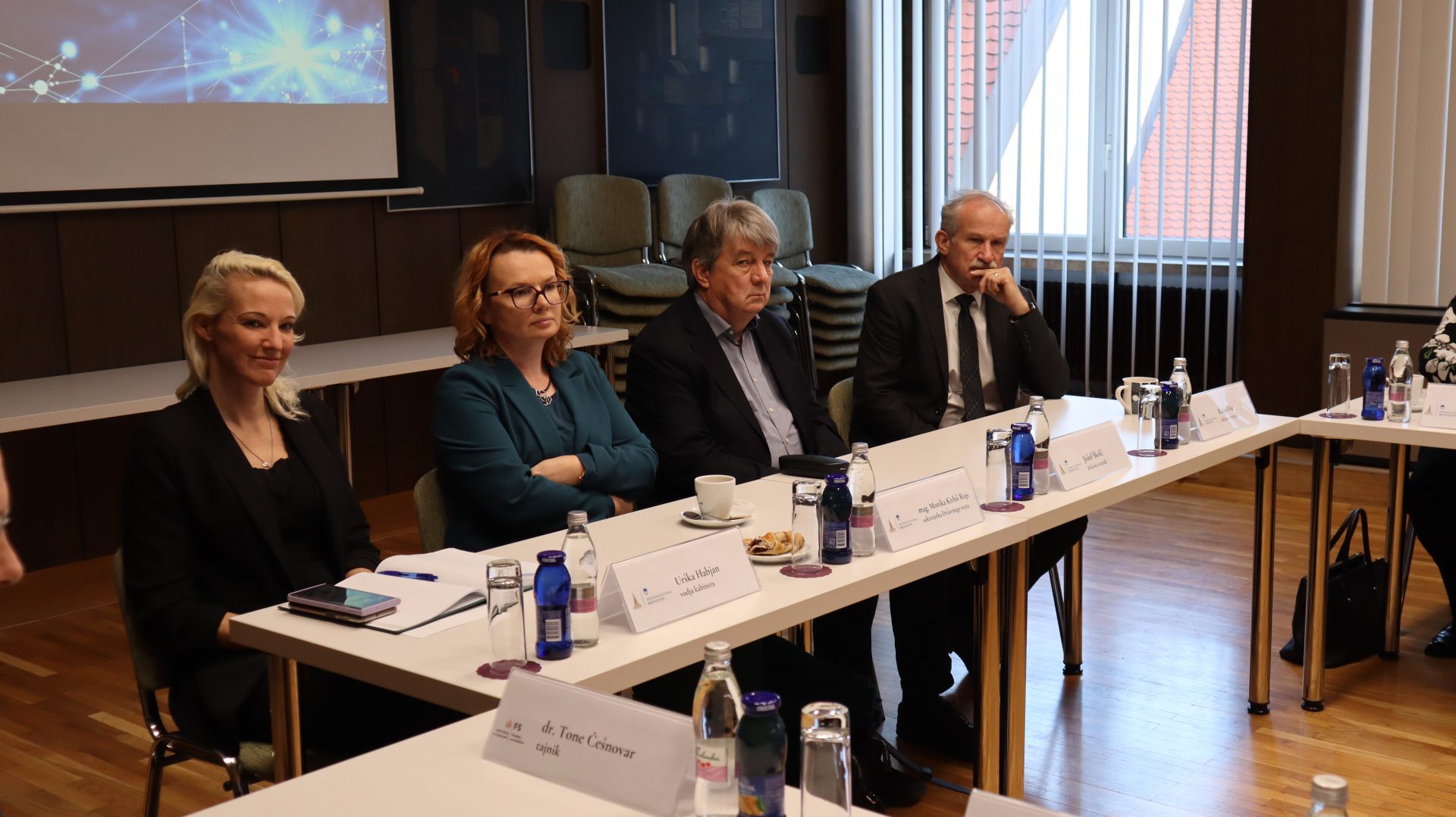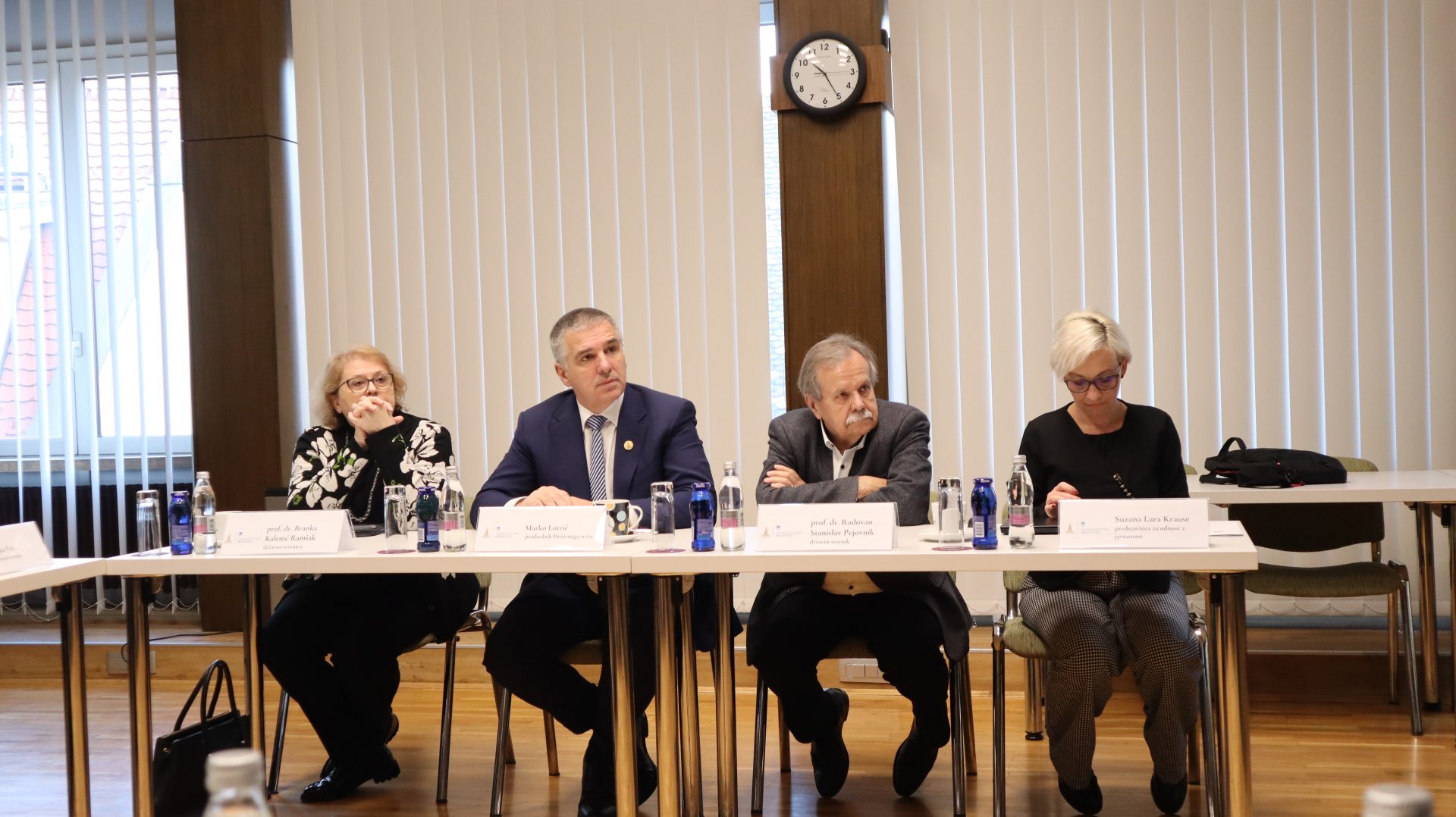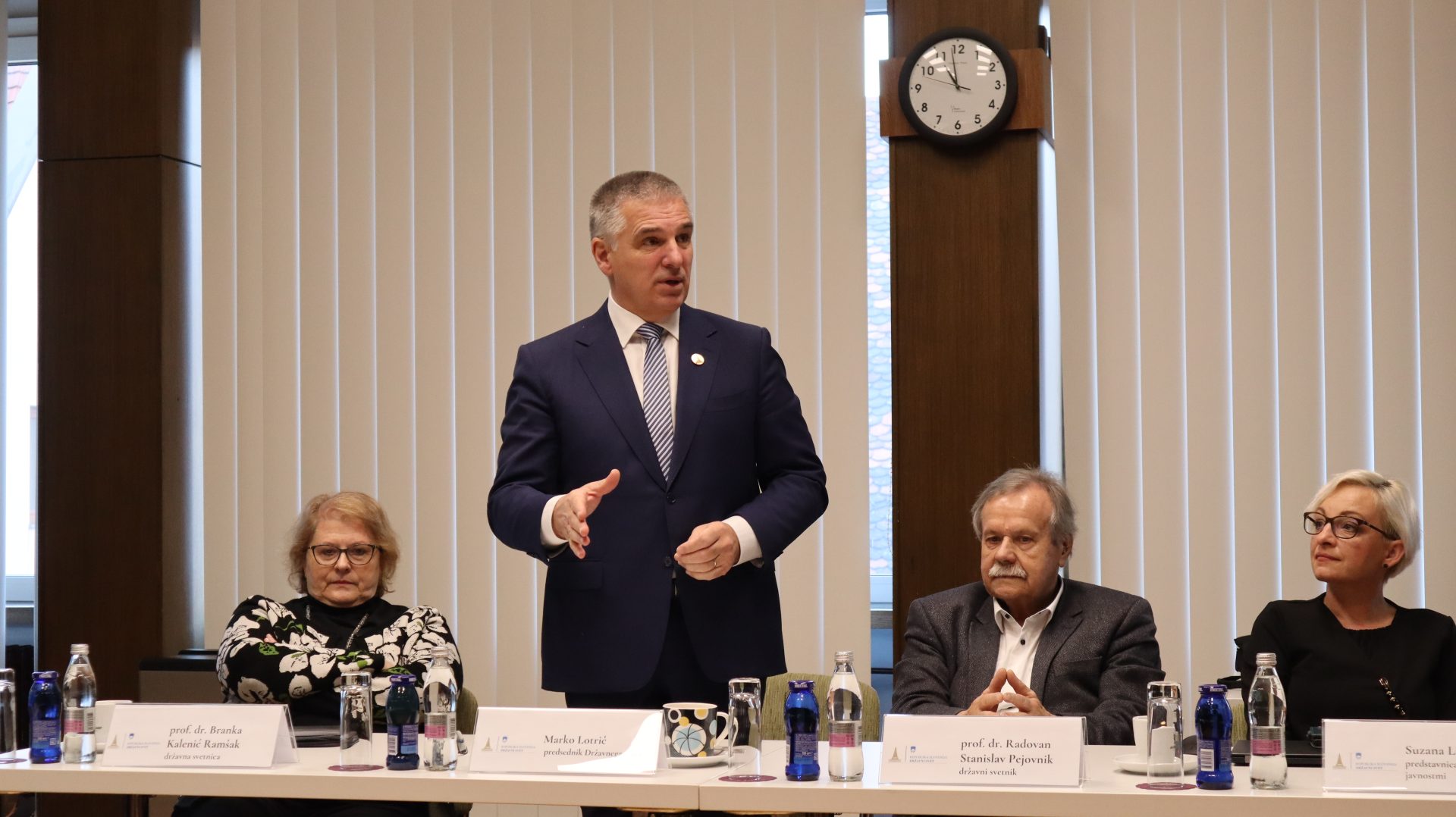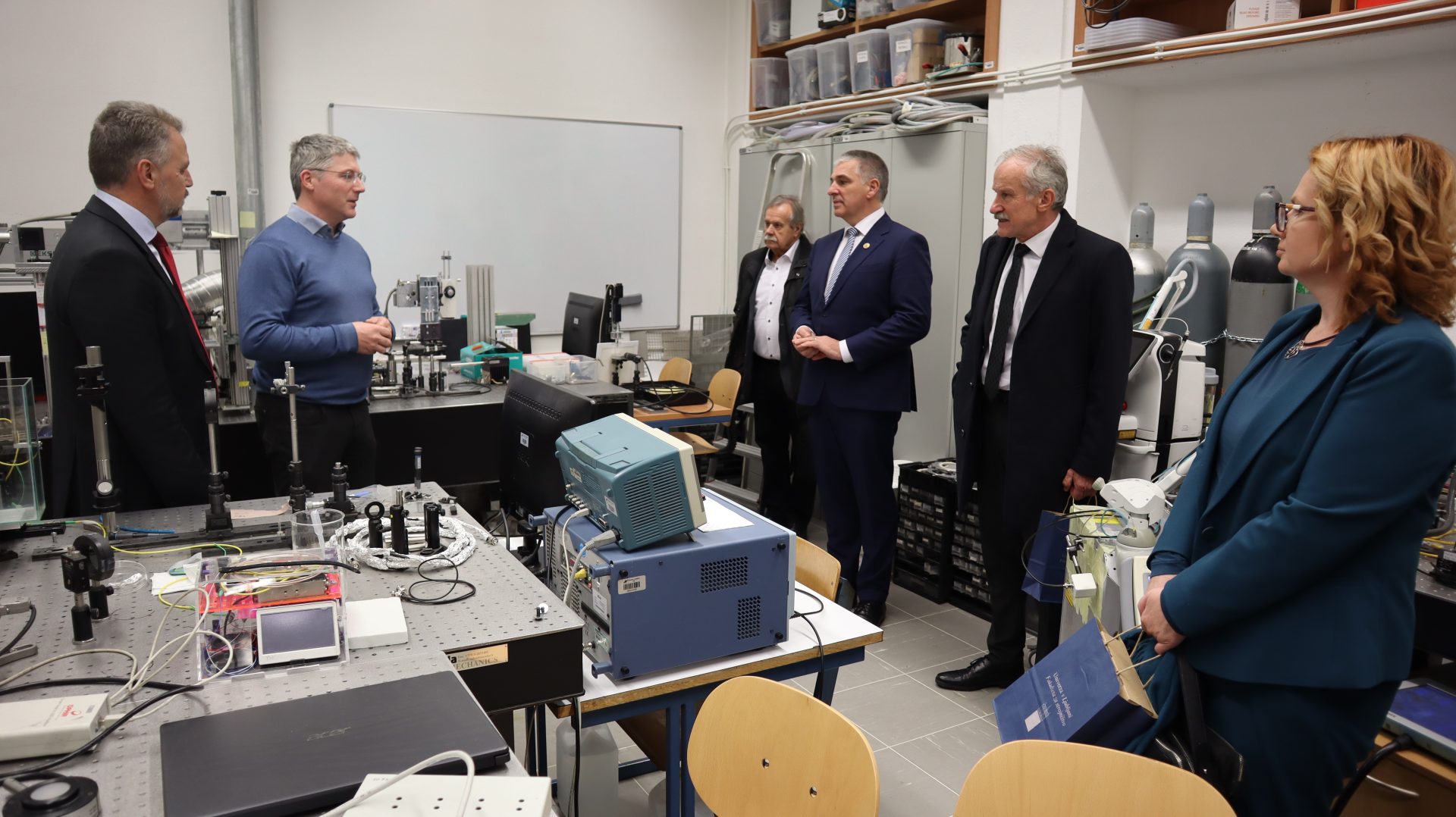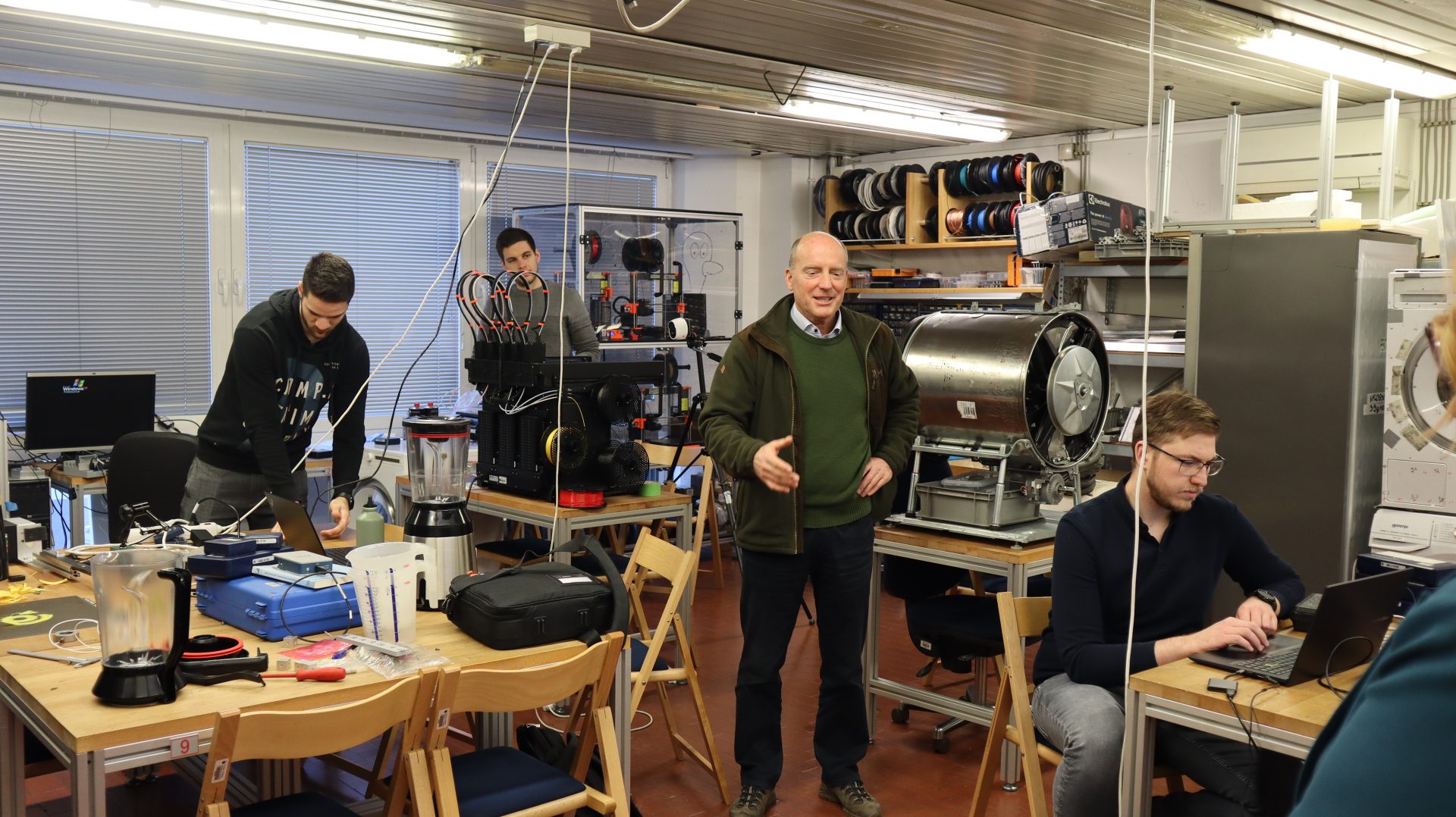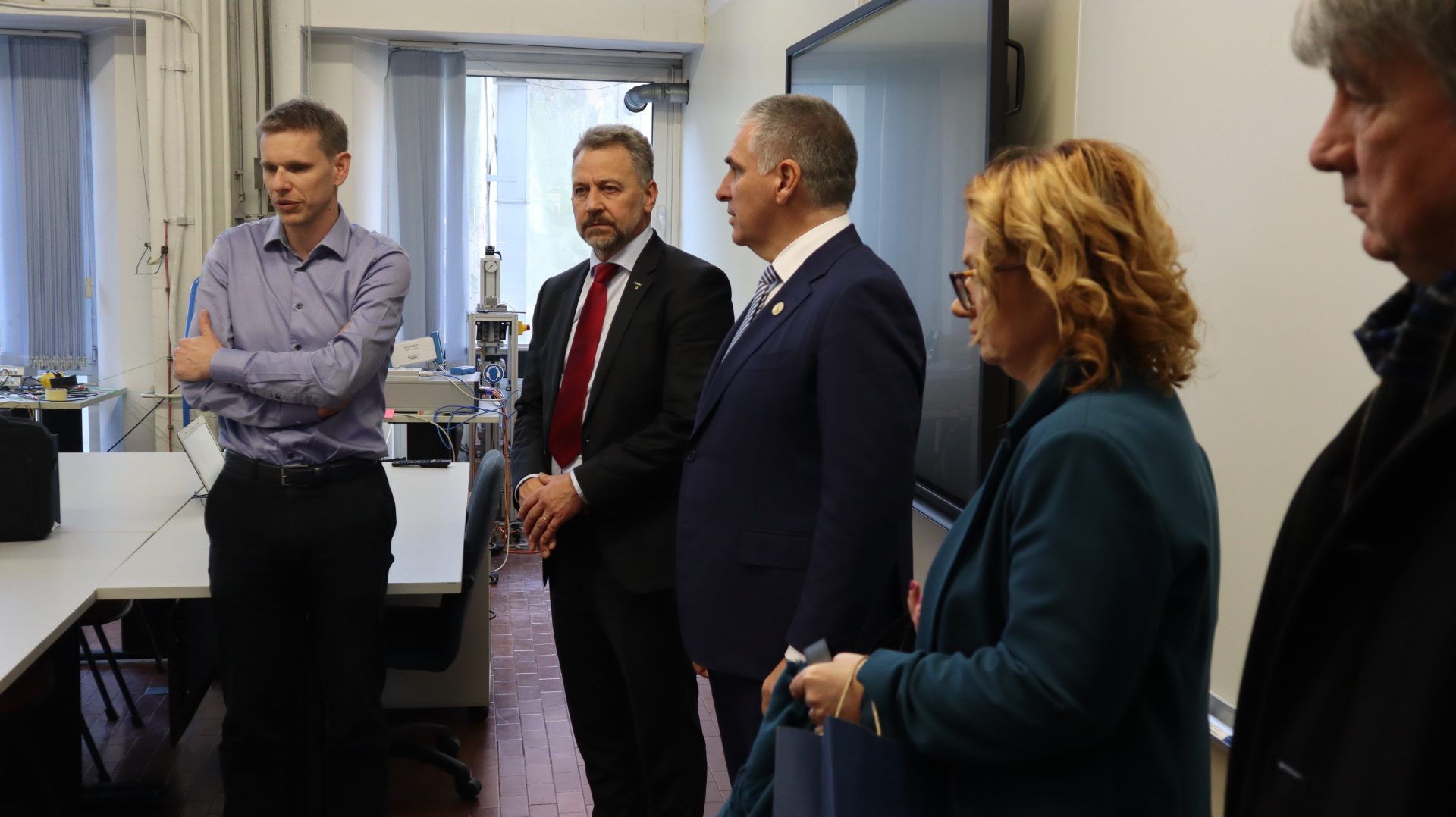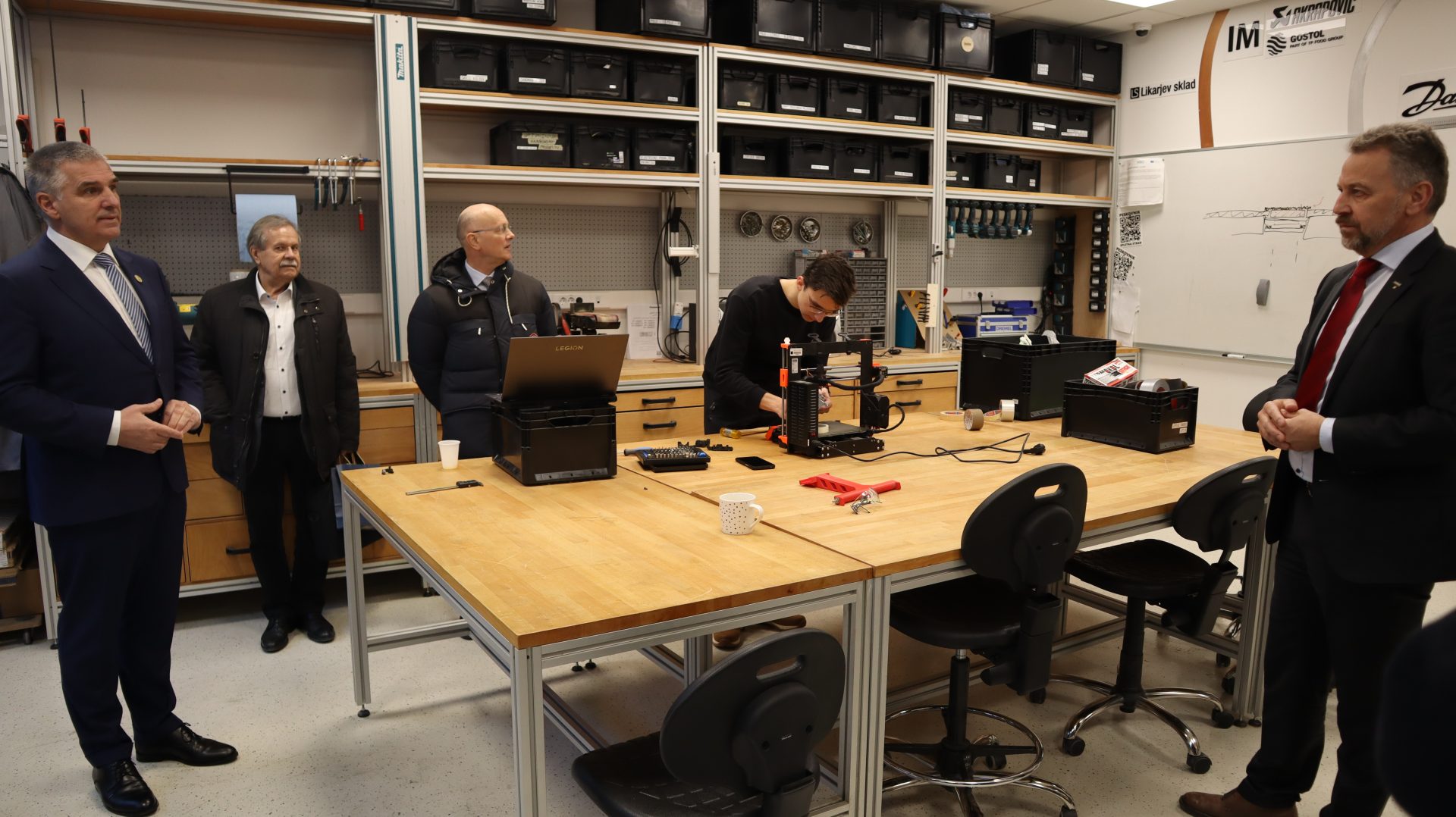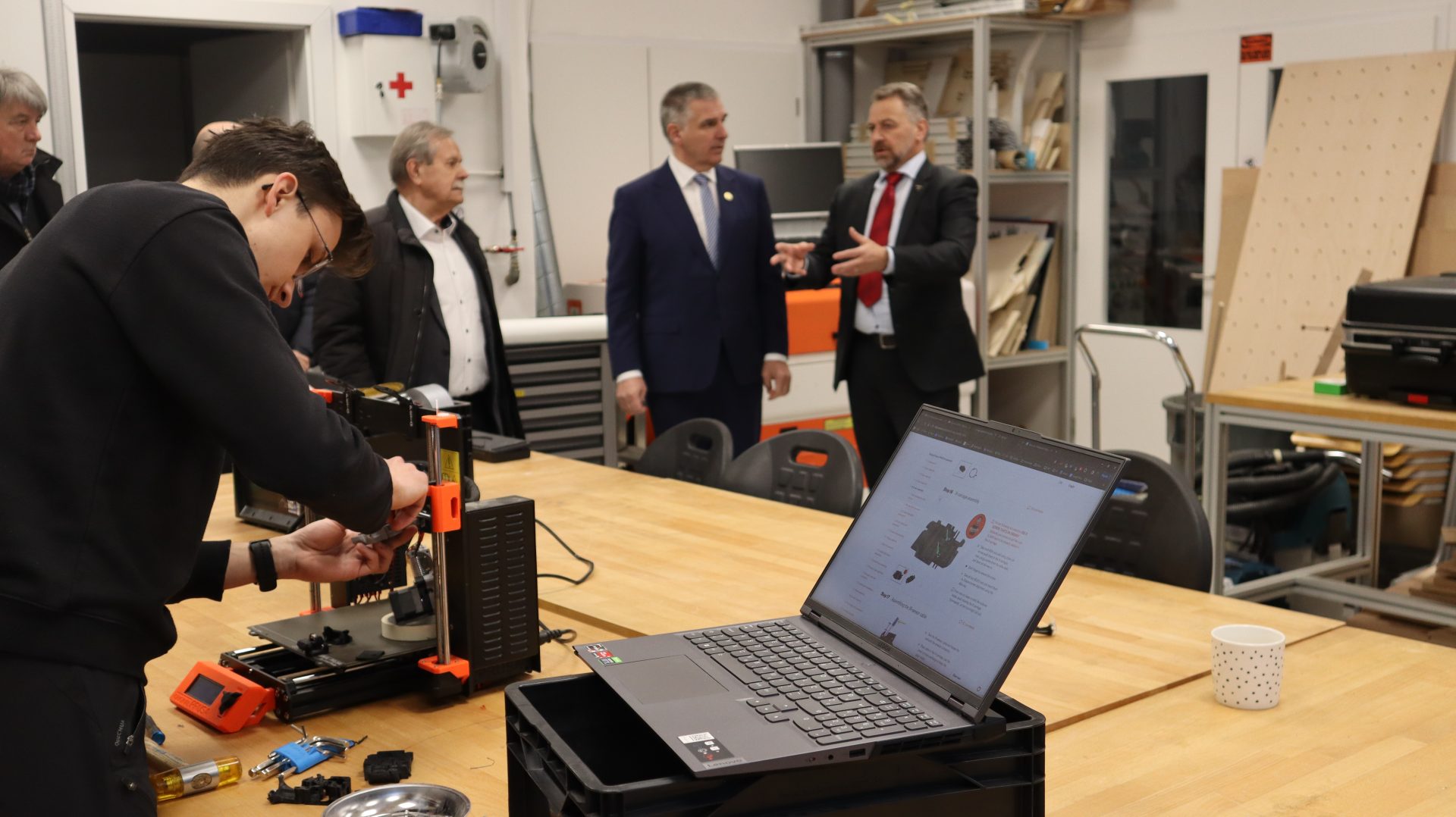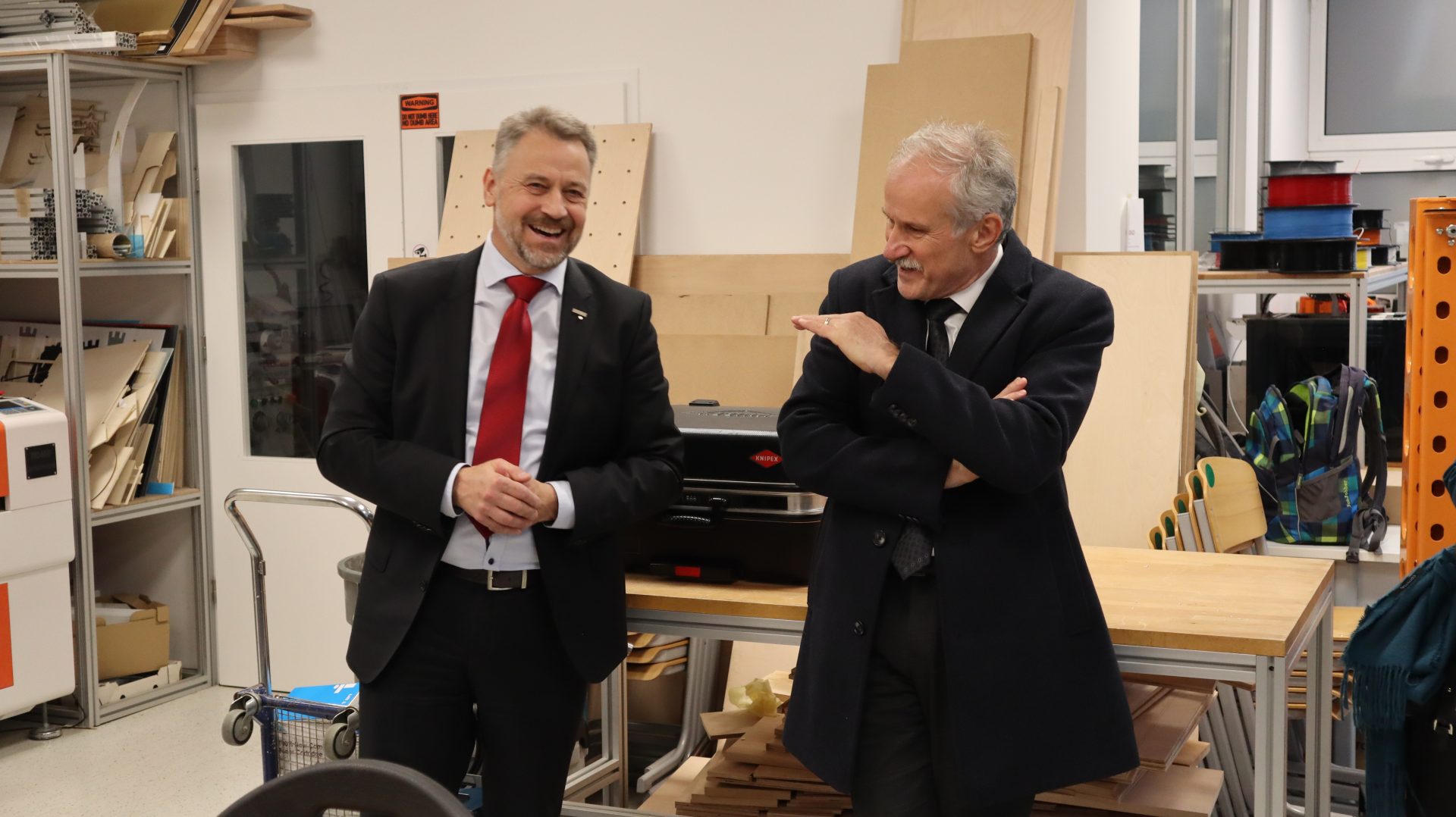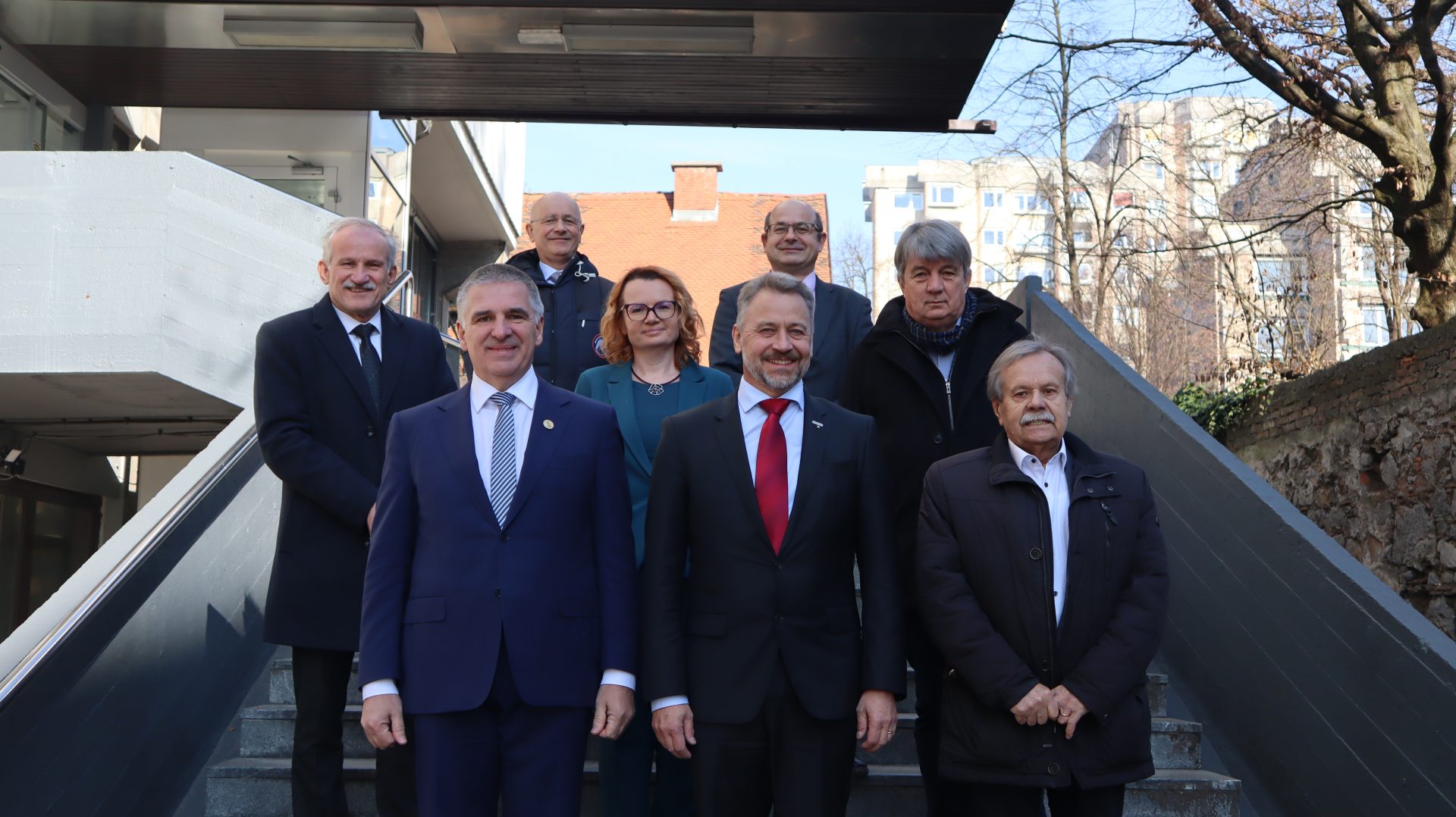The President of the National Council, Marko Lotrič, State Councillor dr. Branka Kalenić Ramšak, State Councillors Rajko Fajt, dr. Radovan Stanislav Pejovnik, Jožef Školč and the Secretary of the National Council, mag. Monika Kirbiš Rojs, took part in a working visit to the Faculty of Mechanical Engineering at the University of Ljubljana.
The Dean of the Faculty, Prof. Dr Mihael Sekavčnik, the Vice-Dean, Prof. Dr Jernej Klemenc, and the Secretary of the Faculty, Dr Tone Češnovar, presented the activities and strategy of the Faculty to the representatives of the National Council, as well as the results in the field of teaching, research and professional work, and informed them about the preparation of the project documentation for the new building and the efforts to complete the financial construction.
The President of the National Council, Marko Lotrič, took the opportunity to emphasise that Slovenia’s greatest asset is its human resources. “Slovenians are known throughout the world as hard-working and dedicated people, and in addition to our diligence, we also have an exceptionally wide range of knowledge and innovative and high-quality approaches. Technical professions are definitely the professions of the future, as evidenced by the fact that there is a fierce competition for technical staff in the labour market, with demand far outstripping supply. From today’s presentation, I understand that the Faculty of Mechanical Engineering is one of the most successful scientific research institutions in Slovenia and, at the same time, the academic institution with the highest proportion of applied professional cooperation with the economy in the country. By educating engineers, it makes an important contribution to the development of the Slovenian economy and the well-being of society as a whole, and I am convinced that the long-awaited new premises will help to strengthen its activities.” The President also considered the Faculty’s activities to contribute to environmentally and socially sustainable, safe and attractive workplaces to be extremely positive for the well-being of society. He also emphasized the necessity of connecting the economy, science, education and the country and individual local communities.
The Dean of the Faculty, Prof. Dr Mihael Sekavčnik, pointed out that “the Faculty of Mechanical Engineering at UL is a leading scientific research and teaching institution, but due to space constraints it can no longer keep up with the demands of the rapidly changing economy and society in general. We are therefore looking forward to the imminent start of construction of the new building on the Brdo campus, which will be an asset not only for future generations of mechanical engineers, but above all for the Slovenian economy and society in general, which is facing the challenging processes of Slovenia’s digital and green transition. With new facilities, state-of-the-art research equipment and a student-centred learning process, we will consolidate our reputation as one of the world’s leading knowledge institutions in mechanical engineering and technology, and ensure the innovation and entrepreneurial renaissance of the Slovenian economy.”
At the end, they also toured the premises and equipment of Laboratory for laser techniques, the Laboratory for Dynamics of Machines and Structures, the Laboratory for Measurements in Process Engineering and the Sandbox – the open laboratory of the UL Faculty of Mechanical Engineering.
